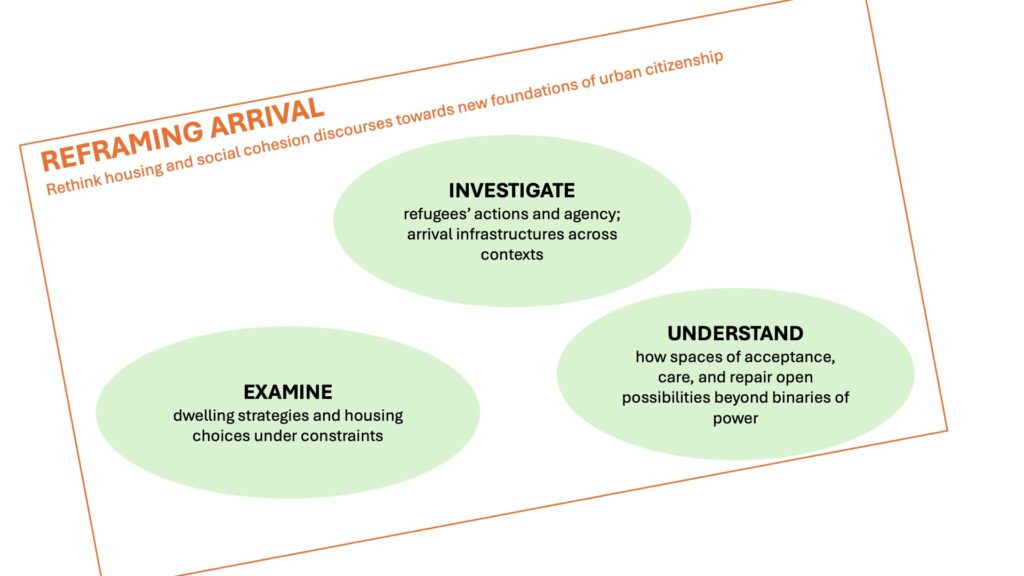Project
This project aims to reframe the paradigm of forced migrants’ arrival as both a policy framework and a discursive realm, addressing the complexities of displacement in the context of entangled crises such as post-COVID recovery, post-Brexit policies, and geopolitical instability following the Arab Spring. Through a comparative, multi-sited approach, it explores how forced migrants navigate housing challenges and engage with arrival infrastructures in four key countries: Germany, Italy, Turkey, and the United Kingdom.
Challenges Addressed
The project investigates how forced migrants cope with housing crises and negotiate their presence within urban spaces under conditions of austerity, displaceability, and humanitarian care. It examines:
- Italy: ‘Interstitial spaces of inhabitation,’ including shelters operated by NGOs, state-led hospitality, and makeshift housing solutions supported by activists and civil society.
- UK: ‘Austerity, arrival, and dwelling strategies’ in Hastings and London, focusing on lived experiences of home, homelessness, and the precarities of urban citizenship amidst gentrification and eviction.
- Turkey: Housing trajectories shaped by displacement, natural disasters (e.g., earthquakes), migration policies, and kinship networks, with a focus on varied tenancy types (rented, owned, or makeshift solutions).
- Germany: Governance of arrival and housing from the 2015/16 refugee influx to more recent migration trends, considering social cohesion and neighborhood dynamics.
Objectives of Research
The project seeks to analyze the processual and relational dimensions of arrival, with attention to the evolving nature of refugee humanitarianism and the spatial, social, and emotional implications of arrival infrastructures.

Theoretical and Policy Contributions
This project bridges migration research with urban studies by problematizing the governance of arrival and its associated challenges. Through systematic analysis of discourses and practices from 2015 to 2023, it disentangles locally specific factors from universal phenomena, contributing to:
- Theoretical advancements in understanding ‘unending arrivals’ and the colonial legacies of reception infrastructures.
- Policy debates that foster inclusive, resilient urban citizenship and housing strategies.
- A nuanced reframing of forced migrants’ arrival as a relational process embedded in historical, emotional, and spatial contexts.
By addressing the intersections of housing, displacement, and urban citizenship, this research seeks to reimagine the possibilities of arrival and challenge prevailing humanitarian and policy paradigms.
